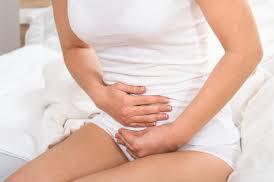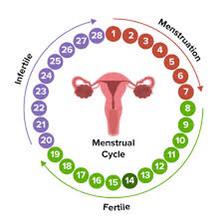Do Piles Affect Menstruation? | Menopause Symptoms & Signs
Piles are also one of the most common diseases these days, and piles have a higher chance of presenting in females. Do piles affect menstruation?
This is the question that has been asked by our female clients, and that’s why we have decided to address this query Do piles affect menstruation?
For once at all. So, if you are a female and also have the same question in mind, then don’t worry because this article is specially designed for you.
Table of Contents
Do piles affect menstruation?
Hemorrhoids or injuries to the rectal or anal area can cause blood in the toilet. This may also be accompanied by a stool change.
Missed or irregular periods are often associated with pregnancy or hormonal changes such as perimenopause. If you find indications of blood in your stool, get medical attention to discover the source.
While the information below may be used to educate yourself about these disorders, it is not intended to replace a diagnosis from a health care practitioner.
Several different medical disorders might be causing your symptoms and indicators. Here are a few examples from Doctor Omar Chughtai.
Menopause & Perimenopause: Symptoms, Signs
What is Menopause?
How does Menopause feel? Menopause is not an illness but rather the stage in a woman’s life when she is no longer fertile, and her monthly cycles have stopped. During this period, ovulation ceases, and estrogen levels fall.
Menopause may cause physical symptoms in some women, such as hot flashes or night sweats. Menopause occurs when a woman has not had a menstrual cycle for 12 months.
Perimenopause is the period before menopause, and the transition symptoms may last anywhere from two to 10 years. Menopause may be seen as an excellent start to a new period of life, with the opportunity to take preventative measures against significant health concerns.
Menopause causes
The most prevalent factor influencing Menopause is age. With aging, the ovaries progressively lose their capacity to generate hormones and ovulate.
Other causes of Menopause exist since various procedures, and medical treatments may trigger Menopause. These reasons include ovary removal, chemotherapy for cancer, and pelvic radiation treatment.
Menstrual periods cannot occur if the uterus is removed (hysterectomy) without the ovaries being released in a premenopausal woman, although the chemical changes associated with Menopause will not happen.
When does Menopause start?
Natural Menopause occurs at an average age of 51; however, it may happen sooner or later. Women may enter Menopause as early as 40 or as late as 60. Women who smoke cigarettes have an earlier menopause than nonsmokers.
There is no way to determine when a confident woman will enter Menopause. Menopause is declared when a woman has not had menstrual cycles for 12 months in a row.

How long does Menopause last?
The average time is two to eight years from the onset of perimenopause through the beginning of Menopause. Some women change more quickly than others.
Signs of Menopause
A woman’s menstrual cycles may shift as she approaches Menopause. They may get shorter, longer, lighter, or heavier. The time between phases may be increased or decreased.
It is usual for women to experience their first period after spending many months without one during perimenopause.
Before a woman enters menopause, she may have years of irregular periods. Pregnancy is possible during perimenopause, but only after a woman has gone a year without having periods.
Consult your doctor if you are concerned about changes in your menstrual cycle. Changes in your period can be caused by conditions other than Menopause.
Menopause Treatment
Hormone therapy is a menopausal treatment option that may help some women relieve numerous bothersome symptoms. Low-dose oral contraceptive (birth control) tablets for perimenopausal women are one option for treating irregular vaginal bleeding and reducing hot flashes.
When addressing symptoms of vaginal estrogen shortage, local vaginal hormone therapy may be administered directly to the vagina.

The vaginal estrogen ring, vaginal estrogen cream, and vaginal estrogen pills are examples of local vaginal hormone therapies (taken orally).
Antidepressants have also been used to treat menopausal hot flashes. Blood pressure drugs, anti-seizure medications, and lifestyle changes are all viable therapies that might help ease symptoms.
Hormone therapy has its own set of dangers; your doctor can assist you in weighing the risks and advantages of this medication.
Summers are coming. So, do you want to know how to prevent piles during summer— Click Here
